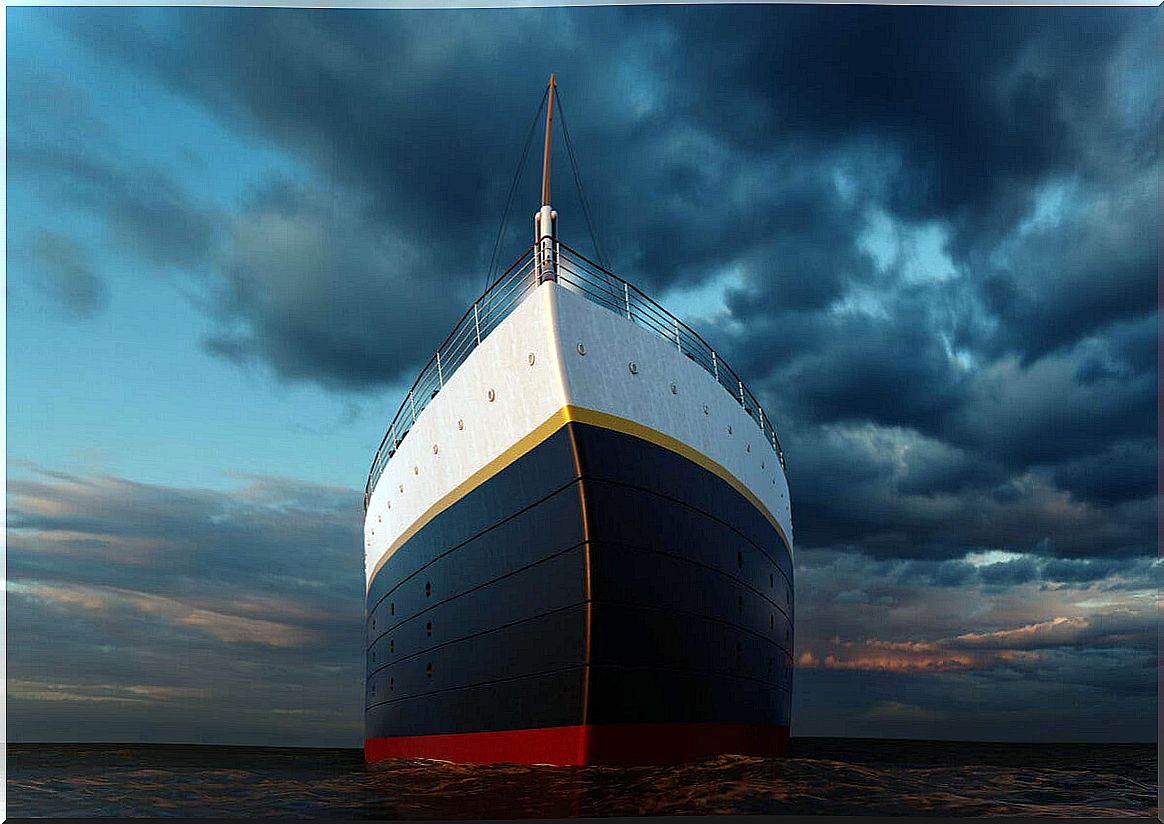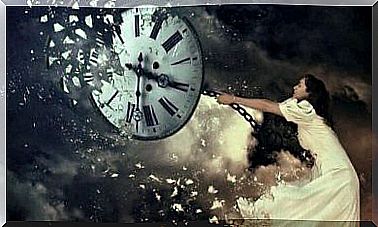Titanic Syndrome: Fear That Everything Will Collapse

Titanic syndrome does not describe any psychological conditions or disorders. It is just a feeling, a feeling that has come over us more and more often in recent years (and even months). It is like witnessing the collapse of an era, like witnessing the fragmentation of a certain time that seems to be sinking, little by little, but in an agonizing way.
Some point out that a large part of the population begins to look to the future with a certain unease. We do not trust that what tomorrow may bring us will be better than what we have now. Almost without knowing how our innocence has vanished, the books on happiness no longer convince as much as they used to, and skepticism and even mistrust begins to reign.
The changes we are experiencing lately are awakening dormant fears in many people. They are instinctive fears, the kind that whisper to us that perhaps everything that we took for granted can change and transform. It is almost like being a sudden traveler aboard the Titanic and seeing how we are getting closer and closer to a large iceberg.
However, seeing such a threat also has a positive side: it allows us to be prepared. It forces us to find something to hold on to so as not to lose our balance, to find a lifeboat to stay afloat at all times …
We are, therefore, before a psychological concept, but above all a philosophical one, which describes a state that anyone can be feeling right now. Let’s dive a little deeper into this idea.

Titanic syndrome, what does it consist of?
The term Titanic syndrome emerged in 2006 from a publication: Liquid Fear , by the philosopher Zygmunt Bauman. In this interesting work, the one who was one of the most influential essayists of recent years spoke to us of a disappointment and the emergence of fear.
For many years, people came to believe that today’s modernity would be the clearest reflection of our progress. In this new millennium we focused on the idea that we would finally leave behind the troubles of inequality, lack, and the anguish of the past … We imagined that we would finally have control over our social and natural environments.
It is clear that this has not been the case. Professor Bauman then introduced the metaphor of the Titanic syndrome. We are a society that travels aboard the iconic and fateful British ocean liner and is seeing a cataclysm arrive. That fear and the awareness that many of the things that we took for granted are going to collapse, undoubtedly define the current moment.
The irony is that in some way, in this book, he predicted many of the things that we feel, live, and perceive right now. Thus, despite the fact that Zygmunt Bauman left us in 2017 and Liquid Fear was written in the wake of the Katrina disaster, its pages are almost prophetic about 2020.
We are afraid of something that is looming on the horizon
The Titanic syndrome does not exclusively define human fear of the feeling that the world they know is going to collapse. It is something deeper and, in turn, useful. After all, Bauman as a great thinker fulfilled with his books the purpose of every philosopher: to help us to reflect, to give us tools for change and action.
With this metaphor a fact is made evident: we are glimpsing the proximity of a disaster and we are not acting. Faced with something like this, we only have two options: limit ourselves to being passive passengers on board a fatal liner or be forewarned.

Faced with a rapidly changing world, an “escape plan” must be devised
The Titanic disaster came not so much from the presence of the iceberg as from the lack of an evacuation plan. The White Star Line shipping company defined its creature as “unsinkable”, as the safest ship ever created. However, he endowed the Titanic with 20 lifeboats, when it had room for 74 boats. There was no defined evacuation plan and the crew failed to react when disaster struck. The forecast was null.
We are almost in the same situation. We navigate an ever-changing ocean. We make decisions based only on that close environment in which everything is safe. But we are not capable of designing an escape plan in the face of a horizon that we sense as threatening.
Titanic syndrome is defined by that fear that everything we take for granted will collapse, but it also integrates a need: knowing how to react. How? If all the wrong decisions made in the Titanic disaster resulted in the loss of 1,413 people , what should we do in the current context?
- You have to believe that the impossible is possible, explains Bauman. Fear is not intended to paralyze us, but to force us to react. For this, it is essential that we convince ourselves that we have the ability to change things.
- We do not have to wait for someone to save us. We have become accustomed to depending on third parties, to expect others to respond to our needs. You have to define an action plan (ours) and be responsible for each decision, for each advance.
- You have to get out of the routine. We can’t be like that music band on the Titanic that kept playing while the ship was sinking. We must begin to generate changes, to enable ourselves in new skills, awaken values, psychological strengths and be able to adapt to a new vital and social stage with hope and resilience.
To conclude, the Titanic syndrome is a highly topical concept worth reflecting on. In times of uncertainty, there is only one certainty that we must never lose sight of: our confidence in ourselves and that we will be able to face any adversity.









